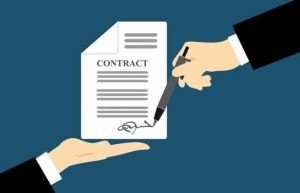Are you aware of the risks associated with a breach of non-solicit provisions in your supplier contracts? If not, it’s time to pay attention.
Non-solicit provisions are essential for protecting your customer relationships and market share, and a breach can have severe consequences.
In this article, you will learn about the importance of non-solicit provisions, the consequences of a breach, and the steps you can take to prevent a breach from occurring.
We will also provide best practices for implementing non-solicit provisions and collaborating with legal counsel to ensure your contracts are secure.
By the end of this article, you will have a clear understanding of the risks associated with non-solicit breaches and the tools you need to protect your business.
Key Takeaways
- Non-solicit provisions are crucial for protecting customer relationships and market share, and breach can have severe consequences.
- Identifying vulnerable employees, such as sales representatives, account managers, and administrative staff, is crucial to prevent breaches, and stricter contractual provisions, training, and monitoring can mitigate risks.
- Preventative strategies include establishing clear guidelines and communication, setting realistic timeframes, defining prohibited conduct, and negotiating fair terms with consequences specified in the contract.
- Building strong, long-term relationships with suppliers based on mutual respect and cooperation, regular communication, and joint strategies for growth can prevent breaches and position the company for long-term success.
The Importance of Non-Solicit Provisions
You can’t afford to let your competitors swoop in and steal your customers. That’s why non-solicit provisions are crucial for protecting your hard-earned market share. These provisions prohibit suppliers from soliciting or hiring your employees or customers for a certain period of time after the termination of the contract.
Without a non-solicit provision, your suppliers could easily cherry-pick your best customers and employees. This could cause significant harm to your business. Non-solicit provisions are particularly important in industries where customer relationships are crucial to success.
For example, in the financial services industry, clients often have longstanding relationships with their advisors. If a supplier were to lure away your best advisors, they could take a significant portion of your client base with them. By including non-solicit provisions in your supplier contracts, you can protect your customer relationships and ensure that your hard-earned market share remains intact.
Consequences of a Breach
Failing to comply with the terms of the agreement can lead to severe repercussions. If you breach the non-solicit provision in your supplier contract, you risk losing valuable customer relationships and market share. Your actions can also damage your reputation and credibility, making it difficult to secure future business opportunities.
A breach of the non-solicit provision can have a ripple effect on your business. Here are two nested bullet point lists to help you understand the consequences:
-
Immediate consequences:
-
Loss of revenue from customers who follow the soliciting party
-
Potential legal action from the affected parties
-
Long-term consequences:
-
Damage to reputation and credibility
-
Difficulty in securing future business opportunities
Don’t underestimate the importance of upholding the non-solicit provision in your supplier contracts. Remember, a breach can have significant and long-lasting consequences for your business.
Understanding the Risks
To understand the risks of a potential breach in your organization, you need to identify vulnerable employees who may be at risk of violating non-solicit provisions in supplier contracts.
You should also assess your supplier practices to ensure they’re adequately protecting your customer relationships and market share.
Lastly, it’s important to analyze industry trends and stay informed about any emerging threats or vulnerabilities that could impact your business.
By taking a proactive approach to risk management, you can better protect your organization from the consequences of a breach.
Identifying Vulnerable Employees
Identifying vulnerable employees is crucial in safeguarding your customer relationships and market share. Breaching non-solicit provisions in supplier contracts can have severe consequences for your business. These employees are typically those who have established close relationships with your clients or have access to sensitive information about them. They may include sales representatives, account managers, or even administrative staff who handle customer data.
To identify vulnerable employees, you should conduct a thorough analysis of your workforce and assess their roles and responsibilities. You should also review your supplier contracts and identify the specific non-solicit provisions that apply to your business.
Once you’ve identified the vulnerable employees, you can take steps to mitigate the risks. This includes implementing stricter contractual provisions, providing training on non-solicitation obligations, or monitoring employee activities more closely. Ultimately, protecting your customer relationships and market share requires a proactive approach that involves identifying and addressing potential risks before they arise.
Assessing Supplier Practices
Assessing the practices of your suppliers is essential for ensuring the integrity of your business operations. When it comes to non-solicit provisions in supplier contracts, it’s important to know whether your suppliers have similar agreements with your competitors. This information can help you identify potential breaches and take necessary actions to prevent them.
Additionally, it’s important to assess the level of control your suppliers have over their employees and their access to your customers. You can do this by requesting information on their hiring and training process, as well as their policies on non-solicitation and confidentiality. This can help you identify vulnerable employees who may be approached by your competitors and take necessary steps to protect your customer relationships and market share.
By assessing supplier practices, you can mitigate the risk of breaches of non-solicit provisions and ensure the long-term success of your business.
Analyzing Industry Trends
By staying aware of industry trends, you can gain valuable insights into evolving customer demands and stay ahead of competitors. One trend that is currently affecting many businesses is the increasing importance of customer relationships. As more and more companies compete for the same customers, it is becoming increasingly important to not only provide high-quality products and services, but also to build strong relationships with customers that will keep them coming back.
To help you stay ahead of the competition, take a look at the table below, which outlines some of the top industry trends affecting businesses today. By keeping these trends in mind and adapting your business practices accordingly, you can ensure that you are meeting the changing needs of your customers and staying ahead of your competitors.
| Industry Trend | Impact on Businesses |
|---|---|
| Digitalization | Businesses must adapt to new technologies and embrace digital channels to stay competitive. |
| Sustainability | Consumers are increasingly concerned about sustainability, and businesses that do not take steps to reduce their environmental impact may face backlash. |
| Personalization | Customers expect a personalized experience, and businesses that fail to deliver may lose customers to competitors who do. |
Implementing Preventative Measures
To avoid any future issues, you should start brainstorming ways to prevent breaches of non-solicit provisions in your supplier contracts. Here are some ideas to consider:
-
Increase the penalties for breaching the non-solicit provision: Make sure that the penalties for breaching the non-solicit provision are significant enough to deter suppliers from violating the terms of the contract. This could include monetary damages or even termination of the contract.
-
Conduct regular audits: It’s important to conduct regular audits to ensure that suppliers are complying with the non-solicit provision. This can help identify any potential issues before they become bigger problems.
-
Strengthen the language in the non-solicit provision: Make sure that the language in the non-solicit provision is clear and unambiguous. This can help avoid any confusion or misunderstandings between you and your suppliers.
-
Educate your suppliers: Make sure that your suppliers are aware of the importance of the non-solicit provision and the potential consequences of breaching it. This can help ensure that they take the provision seriously and are more likely to comply with it.
Responding to a Breach
In the event of a violation, it’s imperative to swiftly address the issue and take appropriate action to uphold the integrity of the agreement. This may involve sending a cease and desist letter to the offending party, reminding them of their contractual obligations and the potential legal consequences of their actions.
It may also be necessary to seek legal advice and pursue legal action, such as filing a lawsuit for damages or seeking an injunction to prevent further violations. It’s important to approach the situation with a level head and a clear understanding of the facts.
Before taking any action, gather evidence to support your claim and consult with your legal team to determine the best course of action. By responding quickly and effectively to a breach of non-solicit provision, you can protect your customer relationships and market share, while sending a clear message to others that you take your contractual obligations seriously.
Best Practices for Non-Solicit Provisions
When creating non-solicit provisions in supplier contracts, it’s important to set realistic timeframes that align with your business needs. This can help protect your customer relationships and market share.
Additionally, defining prohibited conduct and negotiating fair terms can provide clarity and prevent legal disputes down the line.
Setting Realistic Timeframes
You can’t afford to set unrealistic timeframes when it comes to protecting your customer relationships and market share from breaches of non-solicit provisions in supplier contracts. While it may be tempting to set a short timeframe to prevent suppliers from poaching your customers, it’s important to consider the practicality of the timeframe. If the timeframe is too short, it may not give your customers enough time to build a relationship with other suppliers, resulting in lost business. On the other hand, if the timeframe is too long, it may not effectively protect your customer relationships and market share.
To set a realistic timeframe, consider factors such as the industry, the size of your customer base, and the length of your typical sales cycle. A good starting point is to set a timeframe that allows your customers enough time to build a relationship with another supplier, but not so long that it jeopardizes your customer relationships and market share. It’s also important to ensure that the timeframe is enforceable and reasonable. By setting a realistic timeframe, you can protect your customer relationships and market share while also maintaining a good relationship with your suppliers.
| Pros of Short Timeframes | Cons of Short Timeframes | Pros of Long Timeframes | Cons of Long Timeframes | ||
|---|---|---|---|---|---|
| Protects customer relationships and market share quickly | May not give customers enough time to build a relationship with other suppliers | Gives customers ample time to build a relationship with other suppliers | May not effectively protect customer relationships and market share | ||
| Can be more enforceable and easier to manage | May lead to lost business and negative customer experiences | Can be more reasonable and flexible | May strain relationships with suppliers and may not be enforceable | However, they can provide a clear understanding of expectations and responsibilities for both parties. |
Defining Prohibited Conduct
Defining what behavior is forbidden is crucial to ensure that both parties understand the boundaries and expectations of the agreement. In a non-solicit provision, it’s important to clearly define what conduct is prohibited.
This can include directly soliciting customers or employees, inducing or attempting to induce customers or employees, or even encouraging customers or employees to terminate their relationship with the other party.
Other prohibited conduct can include using confidential information to solicit or compete against the other party, or even disclosing confidential information to third parties.
It’s important to be thorough in defining prohibited conduct in order to protect customer relationships and market share. By clearly outlining the boundaries and expectations, both parties can avoid any confusion or misunderstandings and uphold the integrity of the agreement.
Negotiating Fair Terms
Negotiating fair terms is essential for both parties to reach a mutually beneficial agreement. When it comes to non-solicit provisions in supplier contracts, it’s important to establish clear and reasonable guidelines that protect the customer relationships and market share of the company.
Here are three key factors to consider when negotiating fair terms:
-
Specificity: The non-solicit provision should be specific about what actions are prohibited, who’s bound by the provision, and how long it’ll be in effect. This clarity will help prevent any misunderstandings or misinterpretations of the agreement.
-
Reasonableness: The terms should be reasonable in scope and duration, taking into account the nature of the relationship between the supplier and the customer, as well as the industry standards. Unreasonable restrictions may hinder the supplier’s ability to compete in the market and affect their bottom line.
-
Mutuality: The terms should be mutually beneficial for both parties. The supplier should be able to continue doing business with other customers in the same industry, and the customer shouldn’t be unduly restricted from working with other suppliers. A balanced agreement will ensure a positive relationship and foster mutual trust and respect.
Collaborating with Legal Counsel
When collaborating with legal counsel on non-solicit provisions, it’s important to review contract language to ensure clarity and enforceability. Analyzing risks and consequences of potential breaches can help you develop preventative strategies to protect your business.
By taking a proactive approach to non-solicit provisions, you can mitigate risks and safeguard important relationships.
Reviewing Contract Language
Reviewing contract language is crucial in preventing breaches of non-solicit provisions and safeguarding customer relationships and market share. By carefully reviewing the contract language, you can ensure that it’s clear and comprehensive in outlining the non-solicit provision and the consequences of breaching it.
Here are some key points to consider when reviewing contract language:
- Clearly define what constitutes a breach of the non-solicit provision, including what actions are prohibited and for how long.
- Specify the consequences of breaching the non-solicit provision, such as financial penalties or termination of the contract.
- Include language that protects your company’s customer relationships and market share, such as a non-compete provision or a clause that prohibits the supplier from soliciting your customers for a certain period of time.
By taking the time to review and refine the contract language, you can minimize the risk of breaches of non-solicit provisions and protect your company’s valuable customer relationships and market share.
In addition to reviewing the contract language, it’s also important to ensure that the supplier fully understands and agrees to the non-solicit provision. Consider holding a meeting or conference call to go over the provision and answer any questions the supplier may have. This will help ensure that everyone is on the same page and reduce the likelihood of misunderstandings or disputes down the line.
Ultimately, a clear and comprehensive non-solicit provision can help safeguard your company’s interests and strengthen its position in the marketplace.
Analyzing Risks and Consequences
Analyzing the risks and consequences of not being thorough in your contract language can lead to devastating consequences for your company and leave you vulnerable to legal disputes. When a supplier breaches a non-solicit provision, they could potentially lure away your customers and harm your market share. This not only affects your revenue but also your brand image and customer loyalty. It is crucial to assess the risks and consequences beforehand and take preventive measures to safeguard your company’s interests.
To make it more relatable, here is a table that highlights the risks and consequences of a breach of non-solicit provision:
| Risks | Consequences |
|---|---|
| Loss of customers | Decline in revenue |
| Damage to brand image | Legal disputes |
| Decrease in market share | Loss of customer loyalty |
| Negative impact on future partnerships | Reputation damage |
As you can see, the risks and consequences are severe and can have long-lasting effects on your company. It is essential to ensure that your contract language is thorough and covers all potential situations to protect your customer base and market share.
Developing Preventative Strategies
To prevent potential disasters and secure your company’s future success, you need to develop strategies that ensure your business relationships remain intact and your reputation remains untarnished.
One of the most effective ways to do this is to establish clear guidelines for non-solicit provisions in your supplier contracts. This means outlining specific terms and conditions that prohibit your suppliers from soliciting your customers or employees for a set period of time after the contract ends. It’s also important to include consequences for any breaches of these provisions, such as financial penalties or termination of the contract.
By clearly communicating and enforcing these provisions, you can mitigate the risk of losing valuable relationships and protect your market share.
Another preventative strategy is to establish a culture of trust and transparency with your suppliers. This means fostering open communication channels and building strong, long-term relationships based on mutual respect and cooperation.
By regularly communicating with your suppliers and addressing concerns or issues as they arise, you can build a level of trust that will discourage them from seeking business elsewhere. Additionally, by working collaboratively with your suppliers to identify areas for improvement and develop joint strategies for growth, you can strengthen your relationship and ensure that they are invested in your success.
Ultimately, by taking a proactive approach to protecting your customer relationships and market share, you can position your company for long-term success and avoid costly breaches of non-solicit provisions.
Frequently Asked Questions
What are some common mistakes companies make when drafting non-solicit provisions in supplier contracts?
When drafting non-solicit provisions in supplier contracts, companies often make common mistakes that can lead to breaches. One mistake is being too vague or broad in the language used, which can make it difficult to enforce the provision.
Another common mistake is failing to clearly define what constitutes a solicitation, leaving room for interpretation and confusion. Additionally, companies may overlook the need to specify a time frame for the non-solicit provision, leaving it open-ended and potentially indefinite.
It’s important to carefully craft and review non-solicit provisions to avoid these mistakes and protect valuable customer relationships and market share.
How can companies determine the appropriate length of time for a non-solicit provision in supplier contracts?
When determining the appropriate length for a non-solicit provision in your supplier contracts, it’s important to consider various factors such as the nature of your business, the level of competition in your industry, and the type of relationship you have with your suppliers.
You should also take into account the potential harm that could be caused if a supplier were to solicit your customers or employees.
In general, non-solicit provisions should be tailored to the specific circumstances of each supplier relationship, and should not be overly broad or restrictive.
It’s also important to periodically review and update your non-solicit provisions to ensure they remain relevant and effective.
What evidence is needed to prove a breach of a non-solicit provision in court?
To prove a breach of a non-solicit provision in court, you’ll need to present evidence that shows the supplier actively solicited your customers or employees. This can include emails, phone records, or witness testimony that demonstrates the supplier was reaching out to your customers or encouraging your employees to leave your company.
You’ll also need to show that the non-solicit provision was clear and enforceable and that the supplier had knowledge of the provision. If you can provide this evidence, it’ll strengthen your case and increase your chances of successfully protecting your customer relationships and market share.
Are there any exceptions to non-solicit provisions, such as when employees voluntarily leave a company?
If you’re wondering whether there are any exceptions to non-solicit provisions, the answer is yes. Typically, non-solicit provisions are meant to protect a company’s customer relationships and market share by prohibiting former employees from soliciting the company’s clients or employees after leaving.
However, there may be situations where employees voluntarily leave a company and wish to continue working with their former clients. In these cases, companies may choose to waive the non-solicit provision or negotiate a new agreement with the departing employee to allow for continued business relationships.
Ultimately, it’s up to the company to decide whether to enforce the non-solicit provision or make exceptions in certain circumstances.
How can companies monitor and enforce non-solicit provisions in their supplier contracts?
To monitor and enforce non-solicit provisions in your supplier contracts, you can start by clearly outlining the expectations and consequences in the agreement.
Ensure that suppliers understand the importance of protecting your customer relationships and market share.
Regular communication with suppliers and their employees can also help monitor compliance.
Consider implementing non-disclosure agreements and conducting regular audits to ensure that the provisions are being followed.
If a breach does occur, take swift and appropriate action to protect your company’s interests.
Remember, enforcement of non-solicit provisions is crucial to maintaining a competitive advantage and preserving valuable business relationships.
Conclusion
So, now you know the importance of having non-solicit provisions in your supplier contracts. A breach in these provisions could lead to a loss of customer relationships and market share.
It’s crucial to understand the risks involved and implement preventative measures to avoid any breach.
If a breach does occur, it’s important to respond quickly and effectively to minimize any damage.
Remember to collaborate with your legal counsel to ensure that your non-solicit provisions are legally enforceable and to create best practices for these provisions.
By taking these steps, you can protect your business and maintain your valuable customer relationships.
































